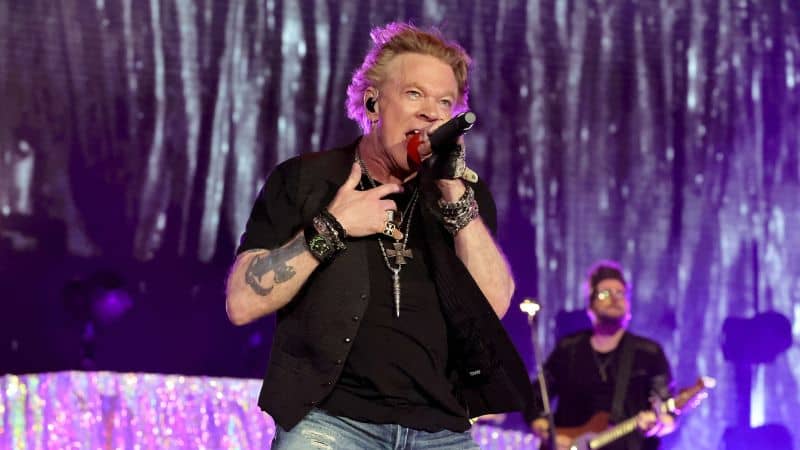“We call on the parties to refrain from further escalation of the situation, exercise restraint and strictly observe the ceasefire in accordance with the trilateral statements of the leaders of Russia, Azerbaijan
Congressman: “We have a broken process at the border.”
With Title 42 ended, hundreds of thousands of “Gotaways” entering illegally and asylum-seekers given court dates years away, “We have a broken process at the border,” says Rep. Don Davis (D-NC), “and we need to put party aside in these divisive politics and get together in a bipartisan way.”
Don't Miss
Editor’s Note: Monthly Ticket is a CNN Travel series that spotlights some of the most fascinating topics in the travel
CNN — Lewis Hamilton may be Formula One’s most successful driver but after securing a record-equaling seventh world title on
It’s a good day for OPEC. Data published Monday by the oil cartel show its members have largely complied with

“We call on the parties to refrain from further escalation of the situation, exercise restraint and strictly observe the ceasefire in accordance with the trilateral statements of the leaders of Russia, Azerbaijan and Armenia of November 9, 2020, January 11 and November 26, 2021,” a Russian foreign ministry statement said.
“We are in close contact with Baku and Yerevan. An appeal was received from the Armenian leadership to assist in resolving the situation … We expect that the agreement reached as a result of Russian mediation on a ceasefire from 9.00 am Moscow time on September 13 will be carried out in full,” it added.
The statement follows a call between Armenia’s Prime Minister Nikol Pashinyan and President Vladimir Putin earlier Tuesday. Local media in Azerbaijan also reported on the ceasefire but said it had already been broken.
On Tuesday morning, the Armenian Defense Ministry claimed Azerbaijan Armed Forces conducted artillery strikes toward Armenian border towns. The strike included drones and large-caliber firearms fired in the direction of Goris, Sotk, and Jermuk, according to the Armenian Defense Ministry.
The Azerbaijani Ministry of Defense responded with a statement acknowledging the strikes, but said the strikes are “small-scale” and “aim to ensure the security of Azerbaijan’s borders.”
On Monday, Azerbaijani Ministry of Defense accused Armenian forces of firing in small arms in the directions of the Novoivanovka settlement of Gadabay region and Husulu settlement of Lachin region near the border of the two countries. Armenia denied the allegations.
The unrest in the region is decades old, dating back to the collapse of the Soviet Union, when the region, backed by Armenia, declared independence from Azerbaijan. Azerbaijan has long claimed it will retake the territory, which is internationally recognized as Azerbaijani.
“A decision was made to officially apply to the Russian Federation for the implementation of the provisions of the Treaty of Friendship, Cooperation and Mutual Assistance, to the Collective Security Treaty Organization and the UN Security Council regarding the aggression against the sovereign territory of the Republic of Armenia,” a statement from the Armenian Prime Minister’s office read.
The request came after a session with the Armenian Security Council and a call between Armenian Prime Minister Nikol Pashinyan and Russian President Vladimir Putin, according to a statement from Pashinyan’s office.
Pashinyan also spoke with US Secretary of State Antony Blinken Tuesday, asking for an “adequate reaction” from the international community in response to what Pashinyan referred to as “the aggression launched by Azerbaijan against the sovereign territory of Armenia,” his office said in a statement.
On Monday evening, Blinken called for the “immediate cessation of hostilities.”
“The United States is deeply concerned about reports of attacks along the Armenia-Azerbaijan border, including reported strikes against settlements and civilian infrastructure inside Armenia,” Blinken said in a statement. “As we have long made clear, there can be no military solution to the conflict. We urge an end to any military hostilities immediately.”
Don't Miss
Congressman: “We have a broken process at the border.” With Title 42 ended, hundreds of thousands of “Gotaways” entering illegally
A senior Armenian official said late on Wednesday that a truce had been agreed with Azerbaijan after two days of

A senior Armenian official said late on Wednesday that a truce had been agreed with Azerbaijan after two days of violence linked to a decades-old dispute between the ex-Soviet states over the territory of Nagorno-Karabakh.
There was no word from Azerbaijan about a truce to halt the deadliest exchanges between the countries since 2020.
Russia is the pre-eminent diplomatic force in the region and maintains 2,000 peacekeepers there. Moscow brokered the deal that ended the 2020 fighting – dubbed the second Karabakh war – in which hundreds died.
Russian news agencies quoted Armen Grigoryan, secretary of Armenia’s Security Council, as telling Armenian television: “Thanks to the involvement of the international community, an agreement has been reached on a ceasefire.”
The announcement said the truce had been in effect for several hours. Armenia’s defense ministry had earlier said that shooting in border areas had stopped.
Each side blames the other for the fresh clashes.
Armenian Prime Minister Nikol Pashinyan had previously told parliament that 105 Armenian servicemen had been killed since the violence began this week.
Azerbaijan reported 50 military deaths on the first day of fighting. Reuters was unable to verify the two sides’ accounts.
Grigory Karasin, a senior member of Russia’s upper house of parliament, told the RIA news agency that the truce was clinched largely through Russian diplomatic efforts.
Russian President Vladimir Putin had spoken to Pashinyan, he said. Putin appealed for calm after the violence erupted and other countries called for restraint on both sides.
In his address to parliament, Pashinyan had said his country had appealed to the Moscow-led Collective Security Treaty Organization to help restore its territorial integrity.
“If we say that Azerbaijan has carried out aggression against Armenia, it means that they have managed to establish control over some territories,” Russia’s Tass agency quoted him as saying.
Armenia and Azerbaijan have been fighting for decades over Nagorno-Karabakh, a mountainous enclave recognised as part of Azerbaijan while being home to a large Armenian population.
Fighting first erupted toward the end of Soviet rule, and Armenian forces took control of large swathes of territory in and around it in the early 1990s. Azerbaijan, backed by Turkey, largely retook those territories over six weeks in 2020.
Skirmishes have since erupted periodically despite meetings between Pashinyan and Azerbaijani President Ilham Aliyev aimed at clinching a comprehensive peace settlement.
Domestic unhappiness in Armenia about the 2020 defeat has prompted repeated protests against Pashinyan, who dismissed reports he had signed a deal with Baku.
In a Facebook post, he blamed the reports on “informational sabotage directed by unfriendly forces”.
A full-fledged conflict would risk dragging in Russia and Turkey, and destabilize an important corridor for oil and gas pipelines just as war in Ukraine disrupts energy supplies.
Armenian Deputy Foreign Minister Paruyr Hovhannisyan said the clashes could escalate into a war – a second major armed conflict in the former Soviet Union while Russia’s military is focused on Ukraine.
Azerbaijan accused Armenia, which is in a military alliance with Moscow and home to a Russian military base, of shelling its army units.
Baku said Azerbaijani Foreign Minister Jeyhun Bayramov had met US State Department Caucasus adviser Philip Reeker, telling him Armenia must withdraw from Azeri territory.
US Secretary of State Antony Blinken on Tuesday said Russia could either “stir the pot” or use its influence to help “calm the waters”.
French Foreign Minister Catherine Colonna, in a call with her counterparts from both countries, also called for the “end of strikes against Armenian territory”.
Don't Miss
CNN — Axl Rose is ending a 30-year Guns N’ Roses tradition. The band’s frontman recently posted a note saying
CNN — Novak Djokovic cruised through to the US Open final after a dominant 6-3 6-2 7-6 (7-4) win against
Chris Kirk speaks to CNN after first PGA Tour win in 8 years American golfer Chris Kirk had won four













